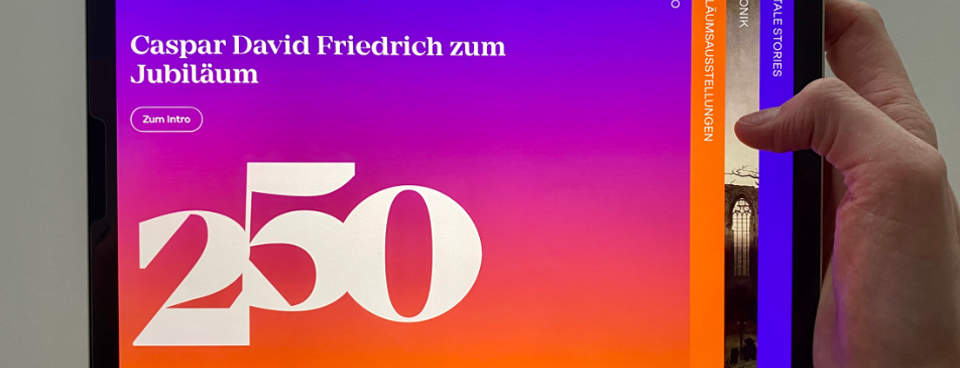Datenraum Kultur – smart museum services


To mark the 250th anniversary of his birth in 2024, the web portal cdfriedrich.de brings together the most important paintings and drawings by Caspar David Friedrich (1774 – 1840) from the collections of the Hamburger Kunsthalle, the Staatliche Museen zu Berlin and the Staatliche Kunstsammlungen Dresden. This permanent digital presentation complements the three Caspar David Friedrich anniversary exhibitions in Hamburg, Berlin and Dresden. High-resolution images and detailed texts provide the opportunity to learn more about individual works of art – beyond the duration of the actual exhibitions. This unique cooperation between the museums is part of the Datenraum Kultur project, a showcase for innovative, data-driven value-added services in the cultural sector. The Hamburger Kunsthalle was responsible for the design and implementation of the web portal. The various data sources are connected using data space technologies from Fraunhofer FIT.
Datenraum Kultur
Datenraum Kultur is one of the 18 flagship projects of the German government's digital strategy. Its mission is to facilitate digital cooperation among cultural institutions and the creative industries while preserving the sovereignty of data owners, creators and service providers. The German Academy of Science and Engineering (acatech) and Fraunhofer FIT are coordinating the project in close cooperation with the Ministry of Culture and Media of the Free and Hanseatic City of Hamburg.
The project makes use of several core competencies of Fraunhofer FIT. Using our human-centered design approach, researchers from the Human-Centered Engineering & Design department elicited the requirements of the users. Our Data Science and Artificial Intelligence department is responsible for implementing the data space components. Here, we draw on our experience in the specification, implementation and application of data space technologies from the International Data Spaces Association and the European Gaia-X initiatives. The Cooperation Systems department manages the execution and implementation of the requirements analyses and the cross-domain coordination.
Your benefits
|